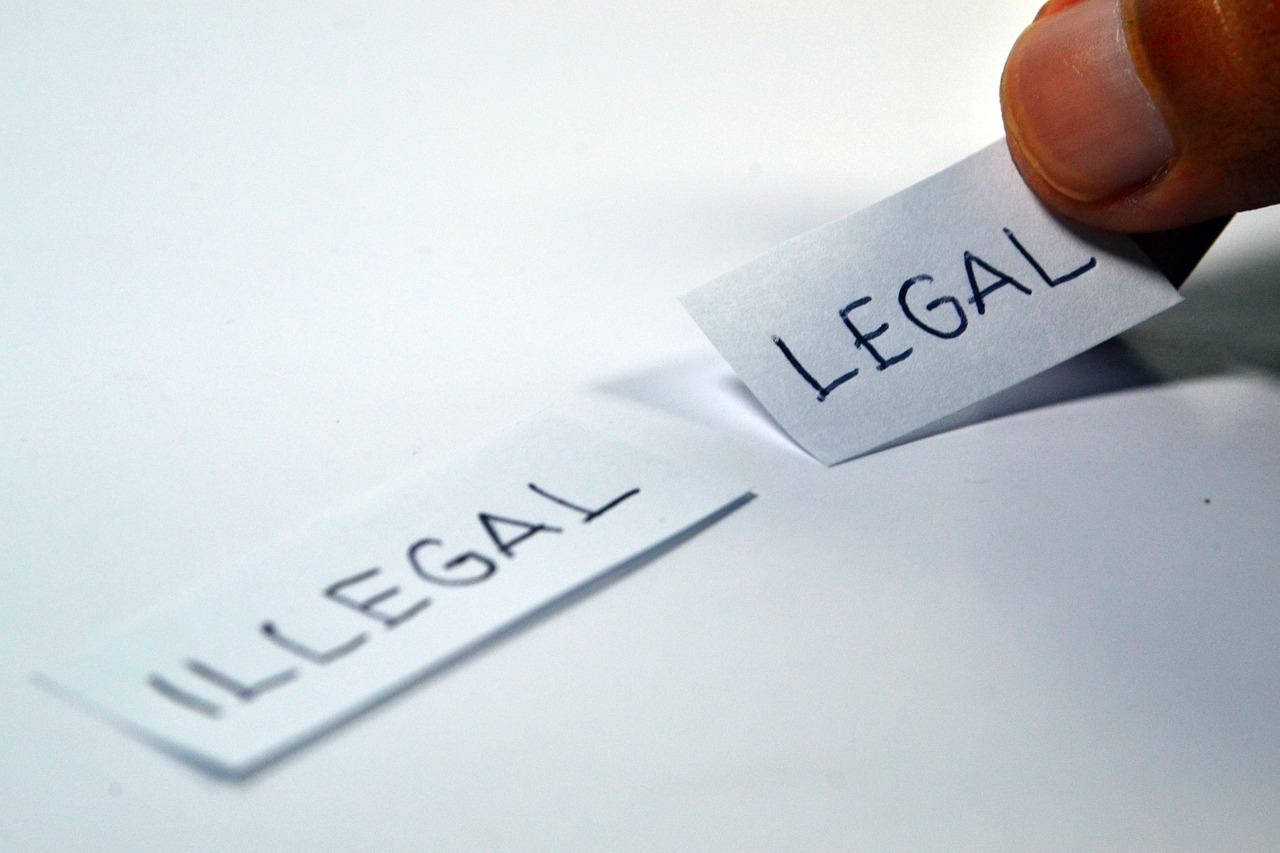In this article, you will discover crucial information on how to effectively steer clear of consumer fraud claims in the state of Utah. As a lawyer specializing in business law, it is essential to understand the intricacies of consumer protection laws and provide expert guidance to your clients. By exploring key strategies and practical advice, this article aims to equip readers with the knowledge needed to mitigate the risk of consumer fraud allegations. With a comprehensive understanding of the laws and regulations in Utah, you can confidently assist your clients in avoiding potential legal consequences while establishing a solid foundation for their businesses. Through a proactive approach and adherence to ethical practices, you can position yourself as a trusted legal professional clients can rely on.
Frequently Asked Questions:
- What are the most common types of consumer fraud claims in Utah? Common consumer fraud claims in Utah include deceptive advertising, identity theft, pyramid schemes, and false product claims.
- How can businesses ensure compliance with consumer protection laws in Utah? Businesses can ensure compliance with consumer protection laws by maintaining accurate advertising, providing clear and complete product information, and implementing robust data protection measures.
- What steps can individuals take to protect themselves from consumer fraud? Individuals should exercise caution when providing personal information, thoroughly research businesses before making purchases, and report any suspicious activities to the appropriate authorities.
- What are the potential consequences of consumer fraud claims in Utah? The consequences of consumer fraud claims in Utah can include financial penalties, damage to reputation, and legal repercussions such as injunctions or cease and desist orders.
- How can a business lawyer assist in avoiding consumer fraud claims? A business lawyer can provide comprehensive legal advice, review business practices for compliance, and draft contracts and agreements to protect businesses from potential consumer fraud claims.
Understand Consumer Fraud Laws in Utah
Consumer fraud refers to any deceptive or dishonest practices that businesses may engage in to deceive consumers. In order to avoid consumer fraud claims and maintain a reputable business, it is crucial to understand the laws surrounding consumer fraud in Utah.
Under Utah law, consumer fraud is defined as any deception, fraud, false pretense, false promise, misrepresentation, or concealment that results in economic harm to a consumer. This includes any unfair or deceptive act or practice, whether committed intentionally or unintentionally. It is important to be aware of this definition in order to ensure compliance with the law and avoid potential legal consequences.
Familiarize Yourself with Utah’s Consumer Fraud Act
Utah’s Consumer Fraud Act is a vital piece of legislation that provides protection to consumers and sets forth guidelines for businesses to follow. The Act prohibits unfair or deceptive acts or practices in the conduct of trade or commerce. It also outlines the legal remedies available to consumers who have been victims of consumer fraud.
In order to avoid consumer fraud claims, it is essential to familiarize yourself with the provisions of the Consumer Fraud Act. By understanding the Act, you can ensure that your business practices align with the requirements and avoid engaging in any prohibited activities.

Create Transparent Business Practices
Transparency is key in establishing trust with consumers and preventing consumer fraud claims. By implementing clear and accurate business practices, you can ensure that your customers have a thorough understanding of your products and services.
Provide Clear and Accurate Product Descriptions
When describing your products or services, it is crucial to provide accurate and detailed information. Avoid any misleading statements or exaggerations that may deceive consumers. Clearly communicate the features, specifications, and limitations of your offerings to prevent any misunderstandings or false expectations.
Ensure Transparency in Pricing and Billing
Honesty in pricing is essential to avoid consumer fraud claims. Clearly display the prices of your products or services and be transparent about any additional fees or charges. Provide detailed invoices that outline all costs involved, including taxes and shipping fees. Avoid any hidden or undisclosed fees that may mislead customers.
Honor Promotions and Discounts
If you advertise any promotions or discounts, it is important to honor them as advertised. Failure to fulfill the promised promotions or discounts can lead to consumer fraud claims. Clearly state the terms and conditions of any promotions or discounts and ensure that they are applied accurately during the sales process.
Avoid False Advertising
False advertising is a deceptive practice that can result in consumer fraud claims. Do not make false or misleading statements about your products, services, or competitors. Ensure that all advertisements, including online and print media, are accurate, truthful, and not likely to mislead consumers.
Maintain Ethical Sales and Marketing Strategies
Ethical sales and marketing practices are essential to building a positive reputation and avoiding consumer fraud claims. By adopting ethical standards, you can ensure that your business operates with integrity and respects the rights of consumers.
Do Not Engage in High-Pressure Sales Tactics
High-pressure sales tactics can sometimes lead to consumer fraud claims, as they may manipulate or deceive consumers into making purchases they do not truly want or need. Avoid using coercive or aggressive tactics to pressure customers into buying your products or services. Instead, focus on providing information and allowing customers to make informed decisions.
Obtain Informed Consent
Before entering into any transaction or agreement, it is important to obtain the informed consent of the consumer. Make sure that consumers fully understand the terms, conditions, and consequences of the transaction before proceeding. Avoid any practices that may exploit the vulnerability or lack of understanding of consumers.
Avoid Deceptive Marketing Techniques
Deceptive marketing techniques, such as bait-and-switch or false promises, can lead to consumer fraud claims. Ensure that your marketing materials accurately represent your products or services and do not mislead or deceive consumers. Avoid any tactics that may create a false sense of urgency or manipulate consumer behavior.
Disclose All Relevant Information
Transparency is crucial in maintaining ethical business practices. Disclose all relevant information about your products or services, including any limitations, risks, or potential drawbacks. Provide clear and concise explanations that enable consumers to make informed decisions. Failure to disclose important information may lead to consumer fraud claims.
Establish Trustworthy Customer Relationships
Building trustworthy and positive relationships with your customers is essential to prevent consumer fraud claims. By prioritizing customer service and satisfaction, you can foster loyalty and trust in your business.
Prioritize Customer Service and Satisfaction
Provide exceptional customer service to demonstrate your commitment to consumer satisfaction. Respond promptly to inquiries, concerns, or complaints, and address them professionally and courteously. Train your employees to prioritize customer service and ensure that they have the necessary skills and knowledge to assist customers effectively.
Respond Promptly and Professionally to Complaints
When receiving a complaint, it is crucial to respond promptly and professionally. Take the time to thoroughly investigate the issue and provide a satisfactory resolution to the customer. By addressing complaints effectively, you can prevent potential consumer fraud claims and maintain a positive reputation.
Maintain Open and Honest Communication
Open and honest communication is key to establishing trust with consumers. Clearly communicate your policies, terms, and conditions, and be available to answer any questions or concerns. Avoid misleading or deceptive statements and ensure that all communications are accurate and reliable.
Comply with Regulatory Requirements
Compliance with consumer protection laws is essential to avoid consumer fraud claims. Stay updated on the relevant laws and regulations that apply to your industry and ensure that your business operations align with these requirements.
Stay Updated on Utah Consumer Protection Laws
Consumer protection laws may change or be updated over time. It is important to stay informed about any amendments or new laws that may affect your business. Regularly review and familiarize yourself with the consumer protection laws in Utah to ensure compliance.
Obtain Necessary Licenses and Permits
Many businesses require licenses or permits to legally operate. It is crucial to obtain all the necessary licenses and permits applicable to your industry and location. Failure to do so may not only result in legal consequences but also create an environment conducive to consumer fraud claims.
Adhere to Industry-specific Regulations
Each industry may have its own specific regulations and requirements. Familiarize yourself with any industry-specific regulations that apply to your business and ensure compliance. Failure to adhere to these regulations may expose your business to consumer fraud claims.

Implement Effective Internal Controls
Implementing effective internal controls is crucial to prevent consumer fraud and protect your business. By establishing processes and procedures, you can detect and prevent potential fraudulent activities.
Train Employees on Consumer Fraud Prevention
Properly educate and train your employees on consumer fraud prevention. Teach them about the importance of ethical business practices, transparency, and compliance with relevant laws. Provide ongoing training and updates to ensure that employees are aware of the latest trends and techniques used in consumer fraud.
Conduct Regular Audits and Reviews
Regular audits and reviews of your business practices can help identify any vulnerabilities or potential areas of concern. Review your policies, procedures, and transactions to ensure compliance with laws and regulations. Identify any weaknesses in your internal controls and take appropriate measures to address them.
Implement Strong Data Security Measures
Protecting consumer data is essential to avoid consumer fraud claims. Implement strong data security measures, such as encryption, secure storage, and confidentiality protocols. Regularly monitor and update your data security practices to stay ahead of potential threats.
Document and Preserve Evidence of Transactions
Accurate record-keeping is crucial to defend against consumer fraud claims. By documenting and preserving evidence of transactions, you can provide proof of the terms and conditions agreed upon with the consumer.
Keep Accurate Records of Sales and Agreements
Maintain detailed records of all sales, including invoices, receipts, and contracts. Ensure that these records accurately reflect the terms and conditions agreed upon with the consumer. This documentation can serve as evidence in case of any consumer fraud claims.
Retain Supporting Documentation
In addition to sales records, retain any supporting documentation that is relevant to your business transactions. This may include emails, correspondence, product or service documentation, or any other materials that provide further context or clarification. By retaining this documentation, you can strengthen your defense against consumer fraud claims.
Maintain Electronically Stored Information (ESI)
In today’s digital age, electronic data plays a significant role in business transactions. It is important to maintain electronically stored information (ESI) in a secure and organized manner. Implement proper backup protocols and ensure that your ESI is easily accessible and accurately represents your business transactions.

Seek Legal Counsel and Guidance
Navigating consumer fraud laws can be complex, which is why seeking legal counsel and guidance is crucial. A business attorney who specializes in consumer fraud can provide valuable advice and assistance in preventing consumer fraud claims.
Consult with an Experienced Business Attorney
Consulting with an experienced business attorney can help you understand your legal obligations and potential risks. An attorney can review your business practices, policies, and documentation to ensure compliance with consumer fraud laws. They can provide guidance on implementing effective risk management strategies and preventative measures.
Retain Legal Representation if Threatened with a Consumer Fraud Claim
If you are facing a consumer fraud claim or threat of legal action, it is important to retain legal representation. A skilled business attorney can guide you through the legal process, protect your rights, and work towards a favorable resolution. They can help you gather evidence, craft a strong defense, and negotiate with the opposing party.
Stay Informed about Changes in Consumer Protection Laws
Consumer protection laws may change or evolve over time. It is essential to stay informed about any amendments or new laws that may impact your business. A business attorney can help you stay updated and guide you on how these changes may affect your practices and policies.
Avoid Engaging in Unfair Competition
Maintaining fair and ethical competition in the marketplace is essential to prevent consumer fraud claims. Avoid engaging in any unfair practices or actions that may harm your competitors or mislead consumers.
Refrain from Making False or Misleading Statements about Competitors
Do not make false or misleading statements about your competitors. It is essential to compete in a fair and ethical manner, respecting the intellectual property, trademarks, and reputation of other businesses. Engaging in false or deceptive practices to gain a competitive advantage can lead to consumer fraud claims and damage your business’s reputation.
Do Not Misappropriate Competitors’ Trademarks or Intellectual Property
Respect the legal rights of your competitors and refrain from misappropriating their trademarks or intellectual property. Any unauthorized use or infringement can result in legal consequences, including consumer fraud claims. It is important to compete based on the merits of your own products or services, rather than by unlawfully using the intellectual property of others.
FAQs
What are the penalties for consumer fraud in Utah?
Consumer fraud in Utah can result in significant penalties and legal consequences. Depending on the severity of the offense, penalties may include monetary fines, injunctions, restitution to consumers, and even criminal charges. It is important to understand and comply with consumer fraud laws to avoid these penalties.
Can I be sued for consumer fraud even if I did not intend to deceive anyone?
Yes, it is possible to be sued for consumer fraud even if there was no intent to deceive. Under Utah law, consumer fraud claims can be brought against businesses for both intentional and unintentional deceptive practices. It is essential to ensure that your business practices are transparent, accurate, and in compliance with the law to minimize the risk of consumer fraud claims.
How can a business attorney help me prevent consumer fraud claims?
A business attorney can provide valuable guidance and support in preventing consumer fraud claims. They can review your business practices and policies to ensure compliance with relevant laws and regulations. An attorney can also assist in implementing effective risk management strategies, training employees on consumer fraud prevention, and resolving disputes or complaints before they escalate into legal action.
Is it necessary for small businesses to comply with consumer protection laws?
Yes, regardless of their size, all businesses in Utah are required to comply with consumer protection laws. Consumer fraud laws apply to businesses of all sizes and industries. It is important for small businesses to understand and comply with these laws to protect their reputation, avoid legal consequences, and build trust with their customers.
What steps can I take to respond to a consumer fraud claim?
If a consumer fraud claim is made against your business, it is important to respond promptly and professionally. Consult with a business attorney to understand the specific allegations and develop a strategy for responding. Collect and preserve any relevant evidence, such as sales records, communication logs, and supporting documentation. Your attorney can guide you through the legal process, negotiate on your behalf, and work towards a resolution that protects your business’s interests.




